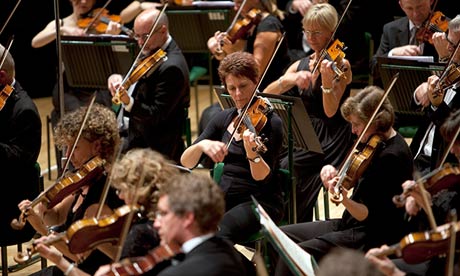
For most, the names of Copland, Bernstein, Gershwin and perhaps latterly Glass are the American composers that figure in the general consciousness, so the BBC National Orchestra of Wales's series, Americana, exploring the wide, open space that is 20th-century American classical music is welcome.
In this first concert, Samuel Barber's Violin Concerto was the only work that appears regularly in the repertoire and, in the hands of soloist Elena Urioste, it got a performance that was both thoughtful and, in the finale, virtuosic. Urioste is currently a Radio 3 new generation artist, an American whose name betrays her Mexican-Basque roots, thus epitomising the very diversity of cultural references being explored in the series. Her fine tone and focused musicianship made their own mark.
Aaron Copland's drive to search for new musical perspectives in the latter part of his career was, in its way, an embodiment of the American pursuit of the new. Inscape, his very last piece, is rarely heard, but here it carried a real immediacy, and conductor Garry Walker sustained the illusion of one vast arc spanning from the massive opening 11-note chord through to its last.
The fascinating question of how it came to be the great teacher Nadia Boulanger in Paris who helped so many American composers discover their national identities is one the series may elucidate. Walter Piston was one of them; in turn he became a celebrated teacher, accordingly less well-known than his pupils, among them Bernstein and Elliott Carter. Piston's Sixth Symphony found a persuasive advocate in Walker, all boundless energy yet bringing finesse first to the lithe and witty scherzo and to the string writing of the Adagio sereno. Walker hadn't really been able to do anything to bring Virgil Thomson's Three Pictures to life; this symphony certainly compensated for that.

